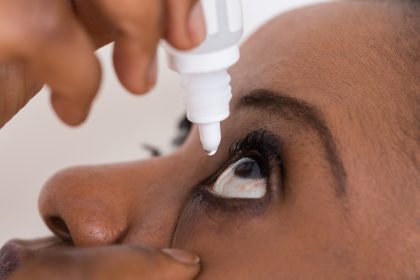When a father receives the life-changing news of a prostate cancer diagnosis, the first thoughts that often come to mind are about family — especially their sons. Prostate cancer is one of the most common cancers affecting men, and sharing the diagnosis with sons can be an essential conversation, though not an easy one.
Promoting early awareness and screening
Prostate cancer often develops silently, with no early symptoms. This makes it crucial for men to be proactive in their health care. By sharing a diagnosis, fathers can raise awareness among their sons about the importance of regular screening and understanding risk factors. Sons need to realize that having a father or close relative with prostate cancer significantly increases their own risk.
Early screening can mean early detection, and early detection can be lifesaving. This information might be the push needed for a son to schedule that first check-up, ask about prostate-specific antigen (PSA) tests, or learn more about potential warning signs.
Too often, men don’t talk about their health. Starting a conversation about prostate cancer can also open the door to discussions about other aspects of health and wellness. It’s a way to break the silence and normalize health care conversations within the family, helping sons to be more vigilant and active in monitoring their own health.
Breaking the cycle of silence and stigma
Cancer can carry a stigma that makes people reluctant to talk about it, and prostate cancer is no exception. Due to its association with masculinity, intimacy and personal health, the topic is often shrouded in discomfort and silence. By openly discussing their diagnosis, fathers can break this cycle, showing their sons that it’s okay to talk about personal health issues.
Such a disclosure fosters emotional bonding and creates a space for sons to offer support to their fathers, making the family unit stronger. When fathers share openly, they demonstrate vulnerability, courage and strength — qualities that sons can emulate. For many men, seeing their fathers face health challenges with transparency and determination is a lesson in resilience, teaching them how to handle adversity.
Encouraging family health history awareness
Understanding one’s family health history is vital to managing future health risks. Prostate cancer can have a hereditary component, and sons need to know their genetic predisposition to be more vigilant about their health care. Discussing the diagnosis allows sons to understand their family’s medical history and take proactive steps to maintain their well-being.
A father’s diagnosis is not just a medical revelation; it’s an opportunity for sons to take charge of their health proactively. Knowledge is empowering, and being informed about a potential increased risk allows sons to make better lifestyle choices, like maintaining a healthy diet, staying physically active and avoiding risk factors such as smoking.
Normalizing conversations about male health issues
Men’s health issues, particularly those affecting the reproductive system, often don’t get the attention they deserve. This is partly due to societal norms that discourage men from discussing vulnerabilities. Fathers who discuss their prostate cancer diagnosis help change the narrative around male health, demonstrating to their sons that it’s normal to talk about health concerns, seek medical advice and pursue treatment options without shame.
Discussing the realities of living with prostate cancer — such as treatments, lifestyle adjustments and emotional experiences — can destigmatize not just the condition itself but also the idea of seeking medical intervention and support. Sons learn that taking care of one’s health involves more than just physical well-being; it’s about mental and emotional health, too.
Building trust and creating a legacy of openness
When fathers share deeply personal experiences with their sons, it builds trust and cements a legacy of open communication within the family. Such honesty and vulnerability make it clear that a father’s role extends beyond being a provider or protector — he’s also a teacher and mentor in all aspects of life, including health.
The conversation around prostate cancer isn’t just a one-time talk; it’s a legacy of health awareness that fathers pass on to their sons. This legacy can extend even further — sons who learn to be health-conscious and communicative about their health may pass these traits on to their own children. This creates a multi-generational impact where family health history is shared openly, and preventive measures are valued.
The journey through prostate cancer is not one a man should have to face alone. Sharing this journey with family, particularly sons, can transform a difficult experience into a powerful opportunity for growth, awareness and family bonding. Fathers who are open about their diagnosis empower their sons to be proactive about their health, break down the stigma around male health issues and build a stronger, more transparent relationship.
This story was created using AI technology.












